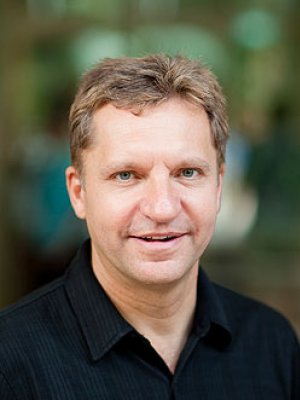
Researchers are working on a solution for a large number of breast cancer patients who do not respond to chemotherapy, using $5 million in new funding.
Funding from the National Breast Cancer Foundation (NBCF) will help with understanding the epigenetics of breast cancer biology, developing new diagnostics and moving towards specialised treatment methods.
Researchers hope their work will reduce the onset of advanced breast cancer, recurrence rates, stop disease progression and significantly increase survival rates.
Professor Matt Trau from the Australian Institute for Bioengineering and Nanotechnology at The University of Queensland, will be the project’s lead chief investigator.
Researchers in nanotechnology, epigenetics, oncology and pathology from around Australia will share the new funding.
The research involves refining diagnostic tools to pinpoint markers for cancer sub-types and monitor patients during treatment.
The tools aim to improve and personalise treatment, which takes into account the sub-type of cancer, and allow for screening for the recurrence of the disease.
Prof Trau said the research would dramatically expand on the current breast cancer treatment regime, with recognition that the disease was not the same in all patients.
“It’s not one disease. Recent research suggests it is at least nine different diseases, each of which requires a different treatment regime. In the clinic, we currently do not have a very good way of distinguishing between them effectively,” he said.
“Because of this problem, only a small percentage of cancer patients derive any benefit from chemotherapy. With the fusion of modern genetics, epigenetics and nanotechnology, we dream of being able to do much better.”
The new funding would allow for clinical trials, with researchers collecting biopsy and serum samples to determine how cancerous tumours responded to chemotherapy.
New technology will be used to evaluate epigenetic biomarkers during a patient’s treatment, enabling researchers to track the tumours.
Researchers will also develop diagnostic devices and processes for breast cancer screening and move towards introducing them in certified clinical pathology labs.
The research will build on work in the past three years, which discovered epigenetic changes in the human body which pointed to the presence of breast cancer.
As well as UQ, the project will include Queensland Health, the Garvan Institute of Medical Research, the University of Newcastle, the Peter MacCallum Cancer Centre, Haematology and Oncology Clinics of Australasia, the Royal Brisbane and Women’s Hospital and Holy Spirit Northside Hospital.
NBCF Director of Research Investment, Dr Alison Butt, said large-scale, collaborative research projects such as this were important in accelerating progress in breast cancer research.
“Bringing scientists together across multiple disciplines is critical to provide new perspectives on the current clinical challenges in breast cancer treatment,” she said.
“The NBCF is delighted to fund this exciting research program that has great potential to make a significant impact on those living with a diagnosis of breast cancer, and their families.”
Media: Erik de Wit, 0427 281 466, 3346 3962 or e.dewit@uq.edu.au



